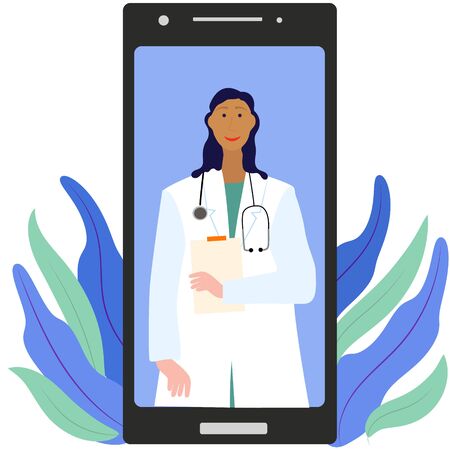A British Perspective on Acne: Cultural Attitudes and Everyday Realities
Living in the UK, one quickly realises that acne is more than just a skin concern—it’s a deeply personal journey often shaped by our cultural attitudes and social environment. While British society has grown more open about discussing skin health, there remains an undercurrent of reservedness when it comes to acne and its aftermath. The classic British stiff upper lip can mean that many people suffer in silence, brushing off breakouts as “just one of those things” rather than seeking support or solutions.
The influence of British media cannot be underestimated. From glossy magazines to popular TV series, there’s an unspoken standard of clear, flawless skin—an ideal that feels distinctly out of reach for anyone struggling with persistent spots or scarring. Even though recent years have seen more diverse representation and candid discussions around real-life skin journeys, the pressure to conceal imperfections still lingers. Whether at school, university, or the workplace, the subtle judgment or unsolicited advice can chip away at self-confidence, making acne feel like a solitary battle.
Acne in Britain isn’t just about appearance; it’s intertwined with daily routines and emotional wellbeing. The unpredictable weather—a humid summer one week, biting winds the next—can wreak havoc on sensitive skin. As someone who’s navigated these ups and downs myself, I’ve noticed how easily a breakout can dampen your mood or make you second-guess joining friends for a night out. Yet, amidst these challenges, there’s a growing community spirit encouraging honest conversations and mutual support, reminding us that no one should feel alone in their journey towards healthier skin.
2. Understanding the Causes: Genetics, Lifestyle, and Environment
When exploring acne and acne scarring within the UK, it’s crucial to look beyond just the skin itself and delve into the British way of life. The causes of acne here are multi-layered, woven from a tapestry of genetics, lifestyle choices, weather patterns, and even beloved national treats. Let’s break down these uniquely British contributors in detail.
Genetic Predisposition
Much like eye or hair colour, our likelihood of developing acne can run in the family. In my own experience growing up in a British household, I noticed that skin tendencies often mirrored those of parents or siblings. If mum or dad struggled with breakouts during their teen years, there’s a fair chance you might too. This genetic link underscores why some people seem blessed with clear skin regardless of their routine while others persistently battle blemishes.
High-Street Lifestyle Habits
The quintessential British lifestyle—often fast-paced and city-centric—can play havoc on our skin. Here’s a quick breakdown:
| Lifestyle Habit | Impact on Skin |
|---|---|
| Long Commutes & Pollution Exposure | Increased clogged pores and irritation due to urban pollutants |
| Quick-Fix Meals (meal deals, takeaways) | Higher consumption of processed foods linked to inflammation |
| Late Nights Out (pub culture) | Disrupted sleep cycles affecting skin repair |
| Sporadic Skincare Routines | Lack of consistency can hinder skin healing |
Unpredictable Weather Patterns
If you’ve ever experienced the infamous “four seasons in one day” that British weather can deliver, you’ll know how quickly your skin can go from oily to parched. The sudden shifts between damp drizzle and dry central heating mean our complexions are constantly adapting. This climate rollercoaster often leads to increased oil production one moment and dehydration the next—a classic recipe for breakouts and subsequent scarring.
Dietary Trends Unique to the UK
Baked beans on toast, endless cups of tea, and the occasional full English breakfast—our eating habits can be as comforting as they are challenging for our skin. Recent studies suggest that high-glycaemic foods (think white bread or sugary cereals) commonly found in British diets may exacerbate acne for some individuals. Meanwhile, dairy products, especially milk in tea or coffee, have also been flagged as potential triggers.
| Dietary Trend | Potential Skin Effect |
|---|---|
| Frequent Tea with Milk | Dairy may aggravate acne in sensitive individuals |
| Baked Goods & White Bread | High glycaemic index could increase inflammation |
| Crisps & Savoury Snacks | Salt and additives might disrupt skin balance |
| Lack of Fresh Produce | Lower intake of antioxidants needed for repair |
Tuning into these cultural nuances gives us a clearer perspective on why acne manifests so persistently across Britain—and points us toward more mindful choices for healthier, rejuvenated skin.

3. NHS Recommendations and Private Alternatives
When it comes to managing acne and its lingering scars in the UK, the National Health Service (NHS) offers a structured, evidence-based approach that many Britons turn to as their first line of defence. Typically, your journey starts with booking an appointment with your local GP, who will assess the severity of your acne and recommend suitable treatments tailored to your skin’s unique needs.
The NHS Pathway: From GP to Specialist Care
Most mild to moderate cases are managed by GPs, who may suggest over-the-counter remedies or prescribe topical treatments such as benzoyl peroxide, retinoids, or antibiotics. For persistent or severe cases, oral medications like antibiotics or hormonal therapies are sometimes considered. If these initial measures aren’t effective or if scarring becomes a concern, your GP might refer you to a dermatologist within the NHS system. This referral process can take time due to waiting lists—a familiar aspect of British healthcare—yet it ensures thorough assessment and access to more advanced interventions like chemical peels or laser therapy for scarring.
Private Sector Solutions: Speed and Choice
For those seeking quicker results or specialised care, private clinics across Britain offer a wealth of alternatives. Whether it’s a desire for shorter waiting times or access to the latest cutting-edge technologies, private dermatologists can provide bespoke treatment plans using medical-grade skincare products, in-clinic procedures such as microneedling, dermal fillers, or advanced laser treatments specifically targeting acne scars. While these services do come at a cost, many find the investment worthwhile for the added convenience and personalised attention.
A Culturally Attuned Approach
What stands out in the British approach is its emphasis on both clinical effectiveness and emotional wellbeing. NHS guidance often includes advice on self-care and mental health support—recognising that acne can impact confidence and social life. Private practitioners also increasingly address the psychological side of skin health through holistic consultations and aftercare support.
Navigating Your Options
Whether you choose to follow the tried-and-tested NHS route or opt for private solutions, understanding the strengths of each system is key. Many Brits find combining approaches—starting with NHS advice before exploring private enhancements—provides balance between affordability and access to innovation. Ultimately, what matters most is finding a pathway that suits your skin’s needs and supports your sense of self throughout the journey.
4. British Skincare Routines: From Boots Finds to Luxe Serums
When it comes to tackling acne and acne scarring in the UK, the skincare journey often starts on the familiar high street. Personally, I found my first foray into an effective routine began at Boots—a beloved British pharmacy that’s practically a rite of passage. Rows upon rows of products promise clear skin, but what truly works? Let me take you through a typical British approach, blending trusted pharmacy staples, beloved home remedies, and cutting-edge serums that are causing quite a stir among UK skincare enthusiasts.
The Pharmacy Experience: Trusted Boots Buys
Boots isn’t just a shop; it’s an institution. Walking in, you’re greeted by everything from budget-friendly cleansers to dermatologist-backed treatments. Products like Simple Kind to Skin and Cetaphil Gentle Cleanser are local favourites for a reason—gentle yet effective for sensitive, blemish-prone skin. The pharmacist is always ready with advice, whether you’re after a spot treatment or looking to understand which retinoid suits your skin type best.
| Product Type | High Street Favourite | Why Brits Love It |
|---|---|---|
| Cleanser | Simple Kind to Skin | Mild, accessible, non-irritating |
| Toner | Boots Tea Tree & Witch Hazel | Purse-friendly, classic spot soother |
| Treatment Serum | The Ordinary Niacinamide 10% + Zinc 1% | Affordable efficacy, visible results |
| Sunscreen | La Roche-Posay Anthelios SPF50+ | Lightweight texture, daily essential even in British weather |
Home Remedies: A Nod to Tradition
No guide to British skincare would be complete without mentioning the classic home remedies passed down through generations. I grew up hearing about dabbing diluted tea tree oil on blemishes or applying cool cucumber slices to calm inflammation after a day in the city. These aren’t just old wives’ tales—they’re part of the culture, blending practicality with self-care rituals that make skincare feel comforting rather than clinical.
Luxe Serums and Trending Treatments
The landscape of British skincare is evolving rapidly. While many still swear by their Boots basics, there’s also growing excitement around premium serums and innovative treatments. Brands like ELEMIS, REN Clean Skincare, and Medik8 have developed cult followings thanks to their science-led formulas targeting pigmentation and scarring. For those willing to invest, these serums offer both luxury and real results—making them popular choices for anyone serious about rejuvenation.
A Personal Routine: What Works Day-to-Day?
Navigating this mix of pharmacy finds and premium picks can be daunting. My current routine blends both worlds—I start with a gentle cleanser from Boots, follow up with niacinamide serum (which has worked wonders for fading old scars), and never skip sunscreen—even when the skies are characteristically grey. On weekends, I’ll treat myself to a hydrating mask from a homegrown brand or experiment with a new acid exfoliant creating buzz on British beauty forums.
This balanced approach embodies what makes British skincare unique: practical yet open-minded, rooted in tradition yet always ready for innovation. Whether you’re shopping at your local chemist or exploring luxury counters in Selfridges, there’s an undeniable thrill in discovering what works best for your skin—one thoughtfully chosen product at a time.
5. Professional Treatments and Emerging Innovations
When it comes to addressing acne and acne scarring, the British approach seamlessly blends tradition with innovation, particularly within professional clinical settings. Across the UK, especially in cosmopolitan centres like London and Manchester, a range of in-clinic treatments are available—each tailored to fit both the local culture and individual needs.
Chemical Peels: A London Salon Staple
One of the most sought-after treatments for acne-prone skin in Britain is the chemical peel. Offered widely in high street salons and specialist clinics, these peels use carefully selected acids to exfoliate the skin, unclog pores, and encourage cell renewal. The British preference leans towards gentle formulations that respect sensitive complexions—a nod to our often unpredictable weather and fairer skin tones. Many find comfort in the ritual of visiting a trusted practitioner, sharing stories over a cup of tea before indulging in this refreshing treatment.
Laser Therapies: Precision Meets Innovation
Laser therapies have become increasingly popular across the UK for tackling both active acne and stubborn scars. Clinics utilise advanced systems like fractional lasers or intense pulsed light (IPL) to target inflammation, reduce redness, and stimulate collagen production. The British mindset values subtle enhancement over drastic change; thus, these treatments are favoured for their ability to deliver gradual yet noticeable results without lengthy downtime. It’s not uncommon to hear friends compare notes on their experiences with local clinics—always with an emphasis on natural-looking outcomes.
Microneedling and Beyond: Embracing New Frontiers
Emerging innovations such as microneedling—where tiny needles create micro-injuries to prompt healing—have carved out a place in many British skincare routines. This technique is often combined with serums or platelet-rich plasma for added rejuvenation. Brits appreciate how this procedure offers improvement over time, aligning with our cultural patience and preference for incremental progress.
The British Skincare Ethos: Blending Science and Sensibility
Throughout the UK, professional treatments are seen as part of a holistic approach to skin health. There’s a strong emphasis on consultation—discussing options thoroughly with practitioners who understand local skin concerns shaped by climate and lifestyle. Whether opting for classic chemical peels or cutting-edge lasers, British clients value safety, subtlety, and the reassurance of evidence-based care. Ultimately, in-clinic innovations here are less about quick fixes and more about fostering long-term confidence—reflecting the thoughtful, understated elegance so characteristic of British beauty culture.
6. Everyday Confidence: Real Stories and Personal Tips on Reclaiming Radiance
Living in the UK, Ive found that our relationship with skin—especially when it comes to acne and its lingering marks—is uniquely British. From secondary school corridors to bustling London high streets, many of us have quietly carried the weight of breakouts or scars. But over time, Ive witnessed a cultural shift: more open conversations, less judgement, and an embrace of authenticity.
Relatable British Experiences
One thing that stands out in British culture is our penchant for understatement—rarely do we make a fuss, even about things that matter deeply. Yet, sharing personal stories has become increasingly common, whether over a cup of tea with mates or through supportive online communities like Acne Support UK. For example, Hannah from Manchester recounts how she felt isolated during her teenage years but gradually built confidence by attending local support groups and following #SkinPositivity accounts on Instagram. Her story is echoed by many who’ve realised they’re far from alone—sometimes all it takes is a friendly chat at the GP’s surgery or a knowing nod from someone who’s been there.
Community Support Resources
The NHS remains a cornerstone for those seeking medical advice, but there are also grassroots organisations—like Changing Faces and Mind—that offer holistic guidance on self-esteem and mental health tied to visible differences. Many local pharmacies provide free consultations and skincare clinics tailored to individual needs. Don’t underestimate the power of community; whether its a supportive Facebook group or a neighbourhood wellness event, finding your tribe can be transformative.
Gentle Guidance for Embracing Your Skin Journey
If you’re navigating your own journey with acne or scarring, remember that British beauty standards are evolving—there’s growing appreciation for natural skin texture and honest storytelling. Treat yourself with compassion: choose gentle products, avoid harsh criticism (both internal and external), and celebrate small victories like clearer days or newfound confidence. It’s perfectly British to take things one step at a time, so allow yourself space to grow and heal.
Warts, Scars, and All: Owning Your Radiance
Your skin tells your unique story—from late-night revision sessions to windswept walks along Brighton Pier. By sharing experiences and drawing strength from community resources, you can reclaim your radiance in every sense. After all, true confidence isn’t about flawless perfection but about embracing yourself—quirks, scars, and all—in the spirit of genuine British resilience.


